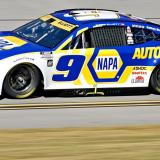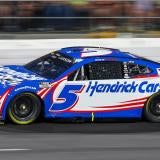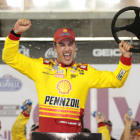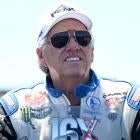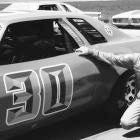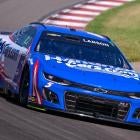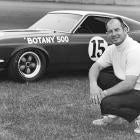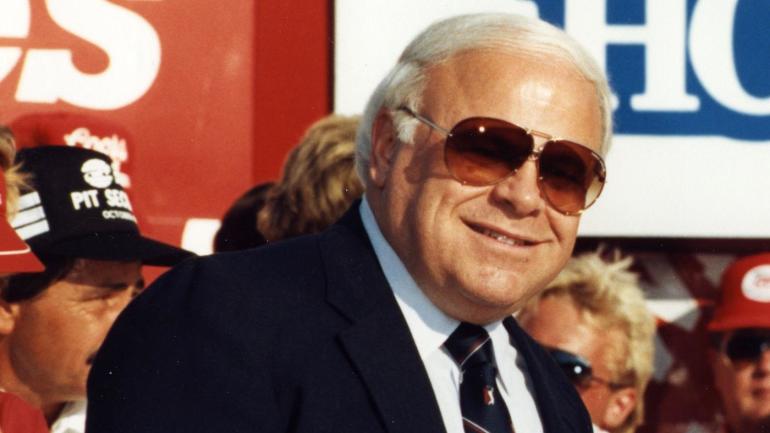
Bruton Smith, a North Carolina businessman who became one of the most prolific track owners and promoters in the history of NASCAR, died Wednesday of natural causes at the age of 95. Smith's death was confirmed by Speedway Motorsports Inc., the company he founded that encompassed his motorsports portfolio.
NASCAR chairman Jim France released a statement on Smith's death after the announcement.
"Race fans are, and will always be the lifeblood of NASCAR. Few knew this better than Bruton Smith. Bruton build his racetracks employing a simple philosophy: give race fans memories they will cherish for a lifetime. In doing so, Bruton helped grow NASCAR's popularity as the preeminent spectator sport. His vision and legacy inspired many, and his fan-first mentality remains today through his son Marcus. On behalf of the France family and all of NASCAR, I offer my deepest condolences to the family and friends of Bruton Smith, a giant of our sport."
Born in 1927 to a farming family in Oakboro, North Carolina, Smith sought to become a race car driver after graduating from high school, using his wages from his job at a hosiery mill to buy a car for $700. After his racing career proved to be short-lived, Smith turned to selling cars and promoting races before being drafted by the U.S. Army during the Korean War. After two years as a paratrooper stateside, Smith resumed his automotive career, this time promoting auto races for the then-fledgling NASCAR.
After establishing himself as a trustworthy promoter, Smith would set the precedent for the rest of his career when he partnered with Curtis Turner to build Charlotte Motor Speedway, a state of the art 1.5-mile speedway that has become one of NASCAR's most iconic venues. More than 30 years later, Smith founded Speedway Motorsports Inc. in December of 1994 by consolidating all of his motorsports holdings, and SMI would shortly thereafter become the first motorsports company to be traded on the New York Stock Exchange.
With a portfolio including nearly a dozen tracks and an eye towards state of the art facilities, Smith became a notorious and innovative figure within NASCAR. He was a pivotal figure in the sport's expansion during the 1990s, as he oversaw the construction of Las Vegas Motor Speedway and Texas Motor Speedway, pushing stock car racing beyond its roots in the southeast into new and bigger markets. He also oversaw the modernization of tracks like Atlanta Motor Speedway and Bristol Motor Speedway, as well as ambitious projects like installing a lighting system at Charlotte Motor Speedway in 1992.
Those methods, however, made Smith a controversial figure. For instance, he was widely vilified for buying and then shuttering the legendary North Wilkesboro Speedway and moving that track's two Cup Series dates to his more modern tracks following the death of track founder Enoch Staley. He also used strongarm tactics towards the city of Concord in order to build a dragstrip alongside Charlotte Motor Speedway, and he could also be an antagonist towards NASCAR -- such as when he was accused of silently backing two antitrust lawsuits against the sanctioning body.
Nonetheless, Smith's contributions to NASCAR were undeniable. And in 2016, Smith was honored by being inducted into the NASCAR Hall of Fame.
In recent years, Smith had taken on a less public-facing role within Speedway Motorsports Inc., giving way to son Marcus. Other companies in Smith's portfolio included Sonic Automotive, EchoPark Automotive, and subsidiaries of SMI such as U.S. Legends Cars International, Performance Racing Network, and zMAX Micro Lubricants.
Bruton Smith is survived by sons Scott, Marcus and David; his daughter, Anna Lisa; their mother, Bonnie Smith; and seven grandchildren.







